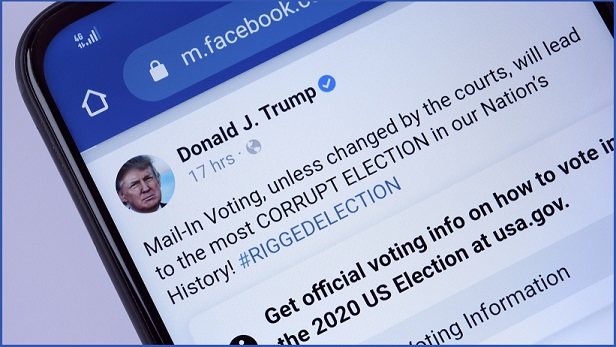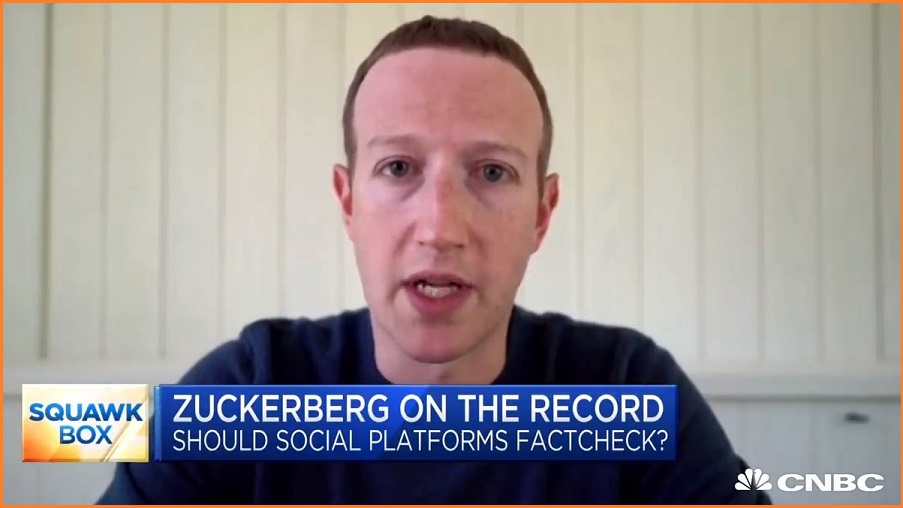Facebook founder Mark Zuckerberg has denied claims that a deal struck with former President Donald Trump meant the social media giant would forego fact-checking while Trump was in the White House.
In return, the Trump administration would not heavily regulate social media.
The explosive claims have been made in the excerpt of a new biography about venture capitalist Peter Thiel, which was published by the New York Magazine on Monday.
Thiel, who is co-founder of PayPal, has a reputation for not paying taxes and being a conservative tech billionaire.
The book, penned by American author and journalist Max Chafkin has exposed the deal in his excerpt of the book ‘The Contrarian: Silicon Valley’s Pursuit of Power’, which was published this week.
The book claims Zuckerberg made a secret deal with the former senior advisor to the president Jared Kushner, who is Trump’s son-in-law.
The alleged deal was that the social media platform would overlook fact-checking political posts if the Trump administration didn’t impose ‘heavy-handed regulations’ on social media.

Donald Trump spreading misinformation on Facebook. Photo: Shutterstock
Talk of the explosive secret deal has been circulating on Twitter in recent days.
According to the book excerpt, the deal was struck during a dinner attended by Zuckerberg on a trip to Washington DC, which was held in October 2019, to answer congressional questions about a cryptocurrency that would function within the Facebook platform.
Thiel was in attendance, along with the men’s spouses, according to the book.
Chafkin has stated in various media that while the specifics of the deal were kept under wraps, that Thiel had later told someone that Zuckerberg had come to an understanding with Kushner during the meal that political speech would not be subject to fact-checking.
Chafkin described the agreement as ‘state-sanctioned conservatism’ in his book, which suggests that the agreement could have been evidence of Facebook failing to take similar measures as other social media platforms (such as Twitter) to be responsible in publishing information.
If true, it meant the Trump campaign would have had free rein to publish information on Facebook in the lead-up to the 2020 election.
BREAKING: In a secret 2019 meeting, Mark Zuckerberg reportedly struck an agreement with Jared Kushner that Facebook would not fact-check political speech during the 2020 election — in exchange, the Trump administration would avoid significantly regulating Facebook. (per @chafkin)
— No Lie with Brian Tyler Cohen (@NoLieWithBTC) September 20, 2021
In return, the Trump administration agreed not to regulate social media in a heavy-handed way.
There are reports that Zuckerberg has denied that any such deal was made, suggesting the idea was ‘pretty ridiculous’.
Facebook has received a lot of criticism over the spread of misinformation on its platform.
Misinformation on the social media platform has received six times more clicks than factual news during the 2020 election, according to one study.
Facebook is yet to make any public announcements about the accusation.
However, Zuckerberg has made some interesting public statements about political speech.
He told CBNC in May 2020 that he didn’t believe that social networks should be fact-checking what politicians post.
“Political speech is one of the most sensitive parts in a democracy, and people should be able to see what politicians say,” Zuckerberg said in an interview.
It’s a big claim that goes against Facebook’s own fact-checking policy.
Facebook’s website states ‘we’re committed to fighting the spread of misinformation on Facebook and Instagram. In many countries and regions, we work with independent, third-party fact-checking organisations … to identify, review and take action on this content”.
While most company leaders would normally turn to Twitter (or, indeed Facebook) to set the record straight, Zuckerberg doesn’t have an active Twitter account, with a total of just 19 tweets since joining the platform in 2009 and 482,000-plus followers.
Meanwhile, Trump has been a prolific user of Facebook and Twitter before he was booted off the platforms in January for violating content policies after the Capitol riot.










